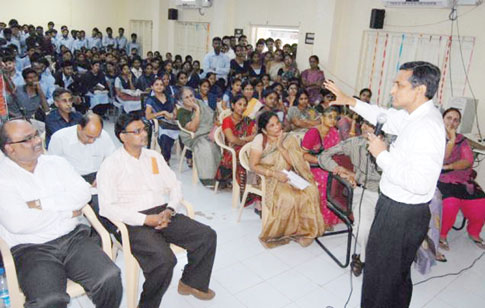
Dr Jayaprakash Narayan, widely known as JP, is the founder and president of Lok Satta Party – new politics for the new generation — and currently a Member of the Legislative Assembly from Andhra Pradesh’s Kukatpally constituency. JP’s experience in government convinced him that the faulty governance process is the biggest hurdle to India’s progress. He resigned from the I.A.S in 1996, as he wanted to work at grassroots for good governance. He emphasizes that democracy is for the people, of the people and by the people. He has also written columns in Indian dailies like Times of India, The Economic Times, Financial Express, The Hindu and Eenadu. He also anchored election coverage on TV along with and political programmess like “Pratidhwani”.
Excerpts from an interview:
Your party is organizing leadership summit to mark its fifth anniversary. Could you give us an outline of the summit?
Lok Satta is poised to be a major political force in Andhra Pradesh and also to capture the national mood against corruption and hunger for clean politics that need to be channelized creatively. It is a platform for new politics for the new generation. Lok Satta leadership summit aims to evolve political strategies to accelerate the political transformation.
There is no dearth of political parties in India. Every party starts off with noble and lofty ideals. But the moment it tastes power, it degenerates, where corruption and criminalisation becomes their cornerstone. Why do you expect people to believe the agenda of your party?
There are failures in democratic accountabilities and institutional setup, which result in such a situation. Let’s start with the perspective of a party, which has no qualms about using any illegitimate means to come to power. Such a party will be prone to using vote buying and other inducements to woo the electorate. Ideally, our law enforcement system should have been strong enough to arrest the illegitimate forms of election expenditure like vote buying. But there is an institutional failure in that. The same failure also results in criminals roaming freely because the cases against them take years to get resolved. Besides, there is tremendous political interference on the law enforcement machinery to distort the criminal prosecution and investigation. Ideally, where there are such institutional failures or political interferences, the democratic accountability of the political representatives to their people should step in. However, it is not happening as either people are swayed by their own short-term considerations or there is a lack of options for quality candidates or merely the fact that elections are won and lost on various social and political considerations beyond such institutional failures.
Lok Satta party consciously draws a line on the political culture it adheres to during the process of elections. It does not give tickets to candidates with criminal records. It does not engage in illegitimate forms of election expenditure like vote buying or liquour distribution, reducing the scope for requirement of returns to the “investments” in elections that are sought by the other parties. These “investments” are recouped from various channels namely bribes from corporations, bureaucracy etc., ultimately extracting it from the people. It would not be a stretch to characterize these politicians as predatory moneylenders. Loksatta does not divide people on caste and communal lines. We are sending a strong signal to the people in terms of the political practices we adopt, which will remove the incentives for people in our party to act in the way the traditional parties do. We have also declared that people should defeat any candidate of Loksatta who indulges in vote buying. Lok Satta has strong internal democratic practices and transparency mechanisms. All leadership positions are filled by secret ballot; candidates are chosen by primary elections. All funding is transparent; all accounts are public. These safeguards ensure constant accountability.






